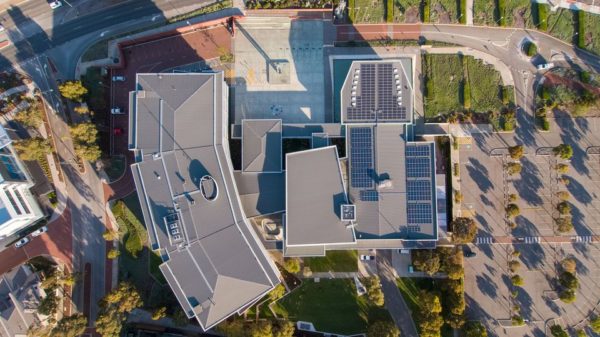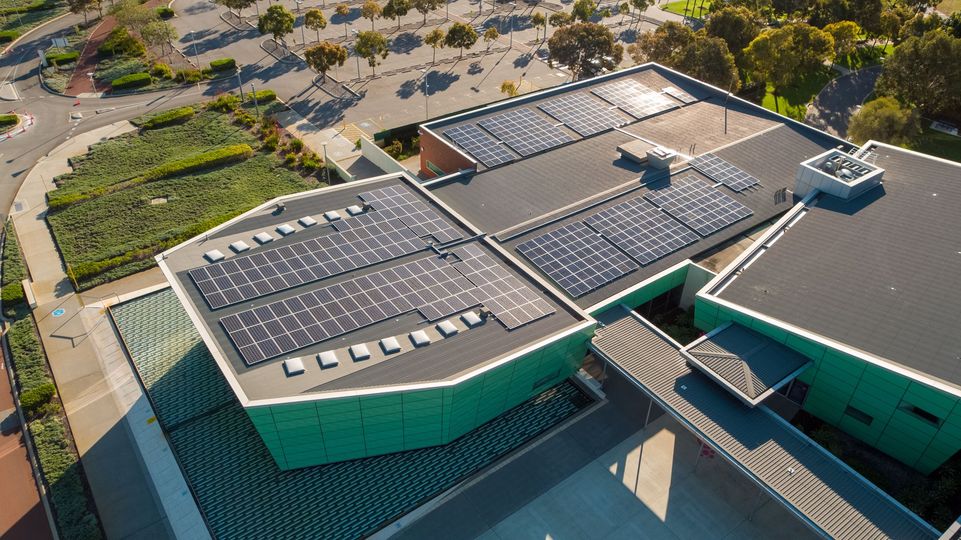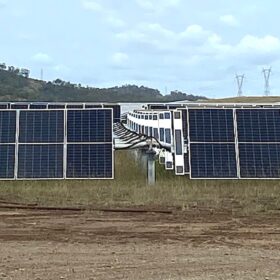The City of Stirling, which encompasses the northern suburbs of Perth has endorsed a $600,000 investment in solar PV installations in its 2022-23 draft budget to ensure its existing solar program – which comprises the deployment of PV panels on more than 20 city-owned properties – is complete by the end of the decade and that emissions reductions are the most cost-effective in the long-term.
The solar program is part of the city’s Sustainable Energy Action Plan (SEAP) which includes sourcing 100% of the city’s electricity needs from renewables by 2030 and achieving a 70% reduction of emissions on 2019 levels in the same timeframe. The energy action plan, which targets net zero emissions by 2050, also includes key performance indicators, including sourcing 50% renewable electricity and 35% emissions reductions by 2025.
With the total cost of the solar rollout estimated at $6 million, council said maintaining existing spending levels would delay completion of the program to 2040. The planned $600,000 investment is almost twice the amount that was allocated to the program in the city’s 2021-22 budget.
Council said initial analysis conducted by the city indicated that accelerating the roll out of its solar program will lead to a $3.3 million saving in energy costs to the city and ratepayers by 2040, compared to business as usual.
Stirling Mayor Mark Irwin said the increased spend means the city is on track to reach its 50% renewable interim target by 2025. The solar program, which will see solar systems installed on at least 24 city-owned buildings, will deliver 21% of the 2025 renewables target with the remaining 29% to be sourced from a power purchase agreement (PPA) the city announced in December 2021.
Stirling, which encompasses more than 100 square kilometres and includes northern Perth suburbs of Scarborough, Trigg and North Beach, is among a group of more than 50 Western Australian local government associations to sign a long-term PPA negotiated by the WA Local Government Association (WALGA).

Image: City of Stirling
The joint energy purchasing initiative enables the group to purchase energy from WA’s main south-western grid, large- and small-scale generation certificates and Australian Carbon Credit Units (ACCUs).
“Our priority is to reduce the consumption of grid-powered electricity on city infrastructure or replace it with renewable sources to decrease carbon emissions,” he said.
WALGA said the project is set to deliver an estimated collective saving of $5 million per annum across all participating local governments.
“Our priority is to reduce the consumption of grid-powered electricity on city infrastructure or replace it with renewable sources to decrease carbon emissions,” he said.
Irwin said the escalation of the city’s solar program was in keeping with the community’s widespread support for faster action on climate change, and that the city would continue to invest to reduce emissions and bring down energy costs over the long term.
“When designing the corporate commitments in our SEAP 2020-2030, community consultation showed 92% support for a 100% renewables target by 2030, and 81% support for our 70% emissions reduction target by 2030,” he said.
Irwin said the solar program is just one of a series of renewable energy options being by the city.
“An investigation into the feasibility of our transition to electric vehicles (EVs) is in progress, with three already endorsed for purchase in the 2022/23 fleet replacement program for our parking services, and a four-week trial currently underway with an EV waste truck,” he said.
This content is protected by copyright and may not be reused. If you want to cooperate with us and would like to reuse some of our content, please contact: editors@pv-magazine.com.









By submitting this form you agree to pv magazine using your data for the purposes of publishing your comment.
Your personal data will only be disclosed or otherwise transmitted to third parties for the purposes of spam filtering or if this is necessary for technical maintenance of the website. Any other transfer to third parties will not take place unless this is justified on the basis of applicable data protection regulations or if pv magazine is legally obliged to do so.
You may revoke this consent at any time with effect for the future, in which case your personal data will be deleted immediately. Otherwise, your data will be deleted if pv magazine has processed your request or the purpose of data storage is fulfilled.
Further information on data privacy can be found in our Data Protection Policy.